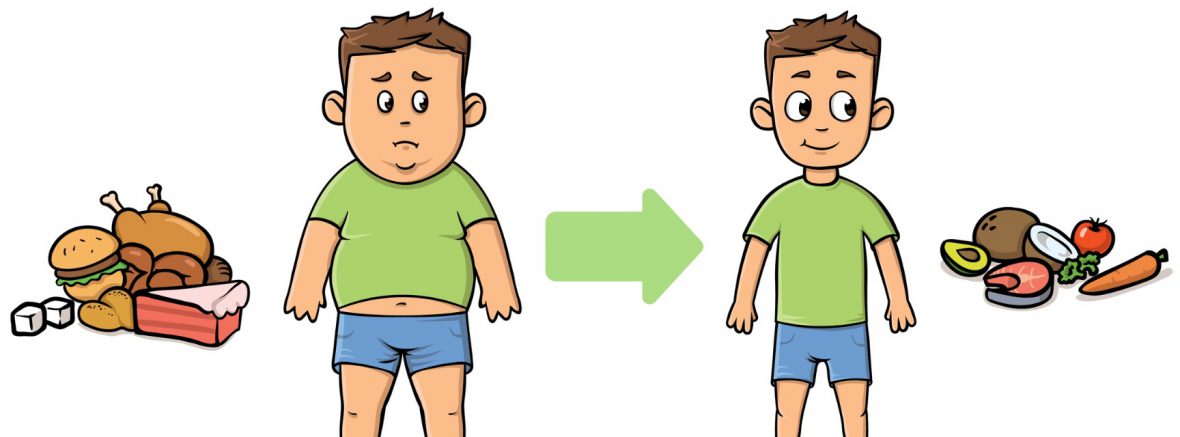Adolescence is a critical age. It is the age when a child may very well develop health habits that will follow him or her into adulthood – both good and bad habits. The most prominent “bad habit” being weight gain. Adolescence is when the human body starts to embrace its natural adult form, and the transition can be a very sensitive time. During the teenage-to-adulthood stage of transformation, the female body’s femininity and the male body’s masculinity starts to show. Teenagers become sensitive to their body changes and compare their differences to their peers’.
Obesity in America is one of the leading causes of teenage insecurity. Their dissatisfaction with their body weight may lead to depressive episodes that make it difficult to manage the challenges they face. Motivating a teenager to lose weight can seem like rocket science. In order to provide the most effective approaches to beginning a weight loss routine for a teenager, experts at Obesity Prevention Foundation of America filtered a list of the most compelling strategies.
Be Committed to the Future Success of Your Child’s Weight Loss
There are few things more upsetting to a teenager than a weight problem that he or she cannot manage. Your involvement as a parent in helping them find a manageable weight loss routine is more important than you may realize.
To help navigate these murky waters, here are some tactics that you may find helpful::
1. Determine your Child’s BMI (Body Mass Index)
The Body Mass Index uses the weight and height of an individual to determine their body fat percentage. You can either use an online BMI Calculator or consult with your family physician. BMI results are useful in drawing a comparison to the BMI data of other teenagers in the same age group. The BMI analysis data will tell you whether your teenager is overweight or clinically obese. If it is determined that your teenager is obese, you should have a discussion with your family doctor about appropriate weight goals for your child..
A consultation is important because not all obese teenagers will be told they need to lose weight, as BMI evaluations can be mislead by rapid growth spurts in children. Their bodies are still growing and changing. Sometimes, simply adopting healthier eating habits can help them become more fit as they grow taller.
2. Take a Consultative Approach Rather than a Direct Approach in Addressing the Weight Problem
No teenager wants to be told that they are overweight or obese. As a parent, you have to gently, respectfully initiate the conversation with your child. Let them feel like they are a part of the weight loss decision-making process. Sit down with them and ask questions. Ask them how they feel about their current weight. Having a mature conversation about the issue can trigger an on-going dialogue between the two of you.
If the teenager does not want to have the conversation, take a step back. Don’t get upset with them or push back too hard. You may feel defeated, but your efforts probably won’t go unnoticed. The next time you bring up the subject of weight (cautiously), you may get a more responsive outcome.
3. Take off the Sheriff’s Badge
Though it may sometimes seem that your child is disrespectful or inconsiderate of your opinions, you have more influence than you may realize. Do not force decisions on them. Be vigilant and encouraging and give your child time to embrace the idea of a healthier lifestyle.
4. Share your Struggles
Share with your teenager any weight struggles you may have faced and overcome. Let them know that you understand how harmful habits can sometimes seem impossible to break. Talk to them about the discipline it took to choose carrots over potato chips Share with them how it got easier to make healthy choices as you practiced making them, and how rewarding it was to look and feel better as a result of your healthy choices. Hearing that you also struggled, but eventually learned healthier habits, may make them want to learn from you.
5. Encourage Healthy Life Changes
Often, the first step to a healthier lifestyle is a change of diet. Sometimes it’s not so much the quantity of food that leads to obesity but the quality. Shifting to healthier foods can significantly boost your child’s health. Sleep and exercise are also important for achieving and maintaining a healthy lifestyle. Eating healthy food, getting enough sleep, and getting enough exercise will not only lead to a healthy weight, but can also decrease stress and ward off depression.
Bottom Line
Dealing with obese teenagers can be tricky. However, once you understand them, you will realize that they are not as challenging as you might have thought. They want to be treated like adults because they perceive themselves as adults. Giving them an adult platform will enable you, as a parent, to work with them towards their goals.
Your supportive parenting will play an enormous role in the health of your children.


